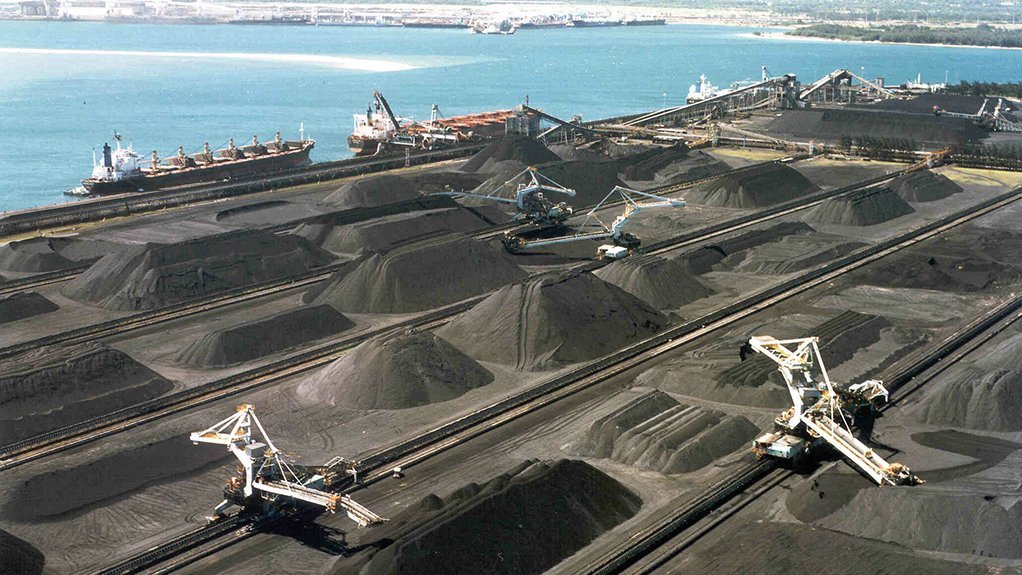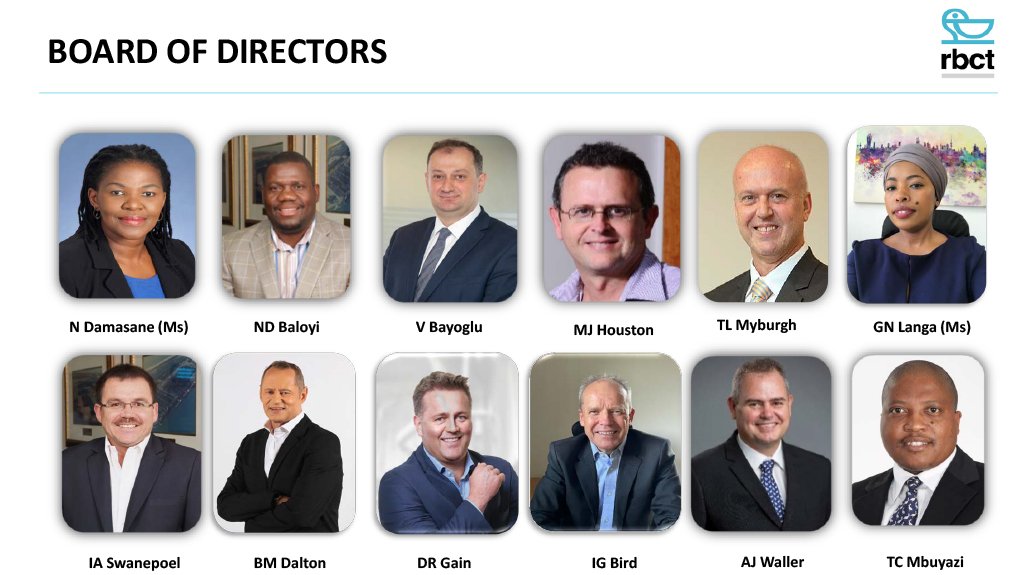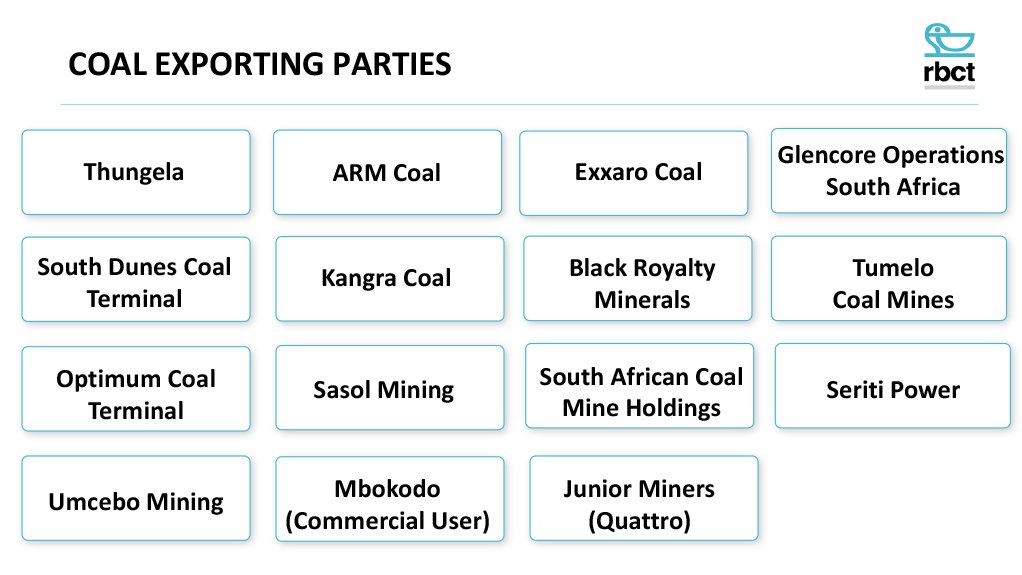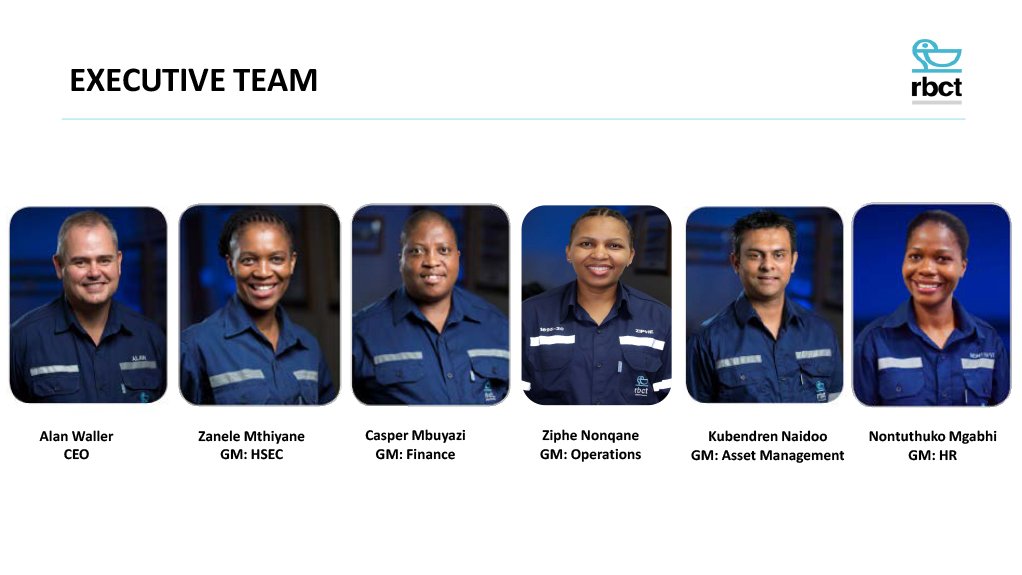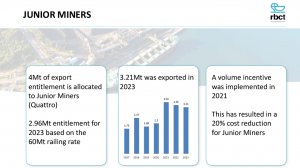JOHANNESBURG (miningweekly.com) – Security incidents that disrupt trains transporting coal to South Africa’s Richards Bay Coal Terminal (RBCT) for export to the world are in definite decline and that has certainly helped to improve performance, acting Transnet Freight Rail (TFR) CE Russell Baatjies emphasised to Mining Weekly during question time at RBCT’s latest media briefing.
In addition, a gradual changeout of overhead catenary copper cable that supplies electricity to locomotives using the coal line with the aluminium conductor steel reinforced (ACSR) cable alternative is being advanced.
“We replace especially hot-spot areas as fast as we can,” said Baatjies.
Copper cables are routinely targeted because of copper’s monetary value on the scrap metal market, with part of the changeout plan to ACSR being carried out during the annual maintenance shutdowns.
“We do it bit by bit because we cannot change it all at once,” TFR executive manager Moloko Matjekane pointed out.
While the ACSR cable does not have the same level of conductivity as copper, it is sufficient to keep the rail network operating and the plan is eventually to replace the cables across the entire network.
There is, however, still insufficient awareness among thieves that the new cables are no longer copper-based and visual differentiation and signposted highlighting are likely going forward so that ACSR cables are not severed by criminals assuming that they are copper cables.
In addition, relay rooms and substations vulnerable to thieving are being shielded by new technology that ensures the early detection of predatory behaviour and quicker protective response.
“We’ve made quite a few arrests and we want to build on our intelligence side to make sure that we get better in terms of the convictions that we have.
“It’s something that we’ve identified that we need to improve upon on our side, but certainly the teams that we have on the ground make arrests in the instances where we do find the culprits busy,” Baatjies disclosed.
Discussions to advance still further the security relationship that RBCT has had in place with Transnet for 24 months are under way, amid the mutual cooperation agreement signed in November of last year already being seen as a game-changer.
Likely to be piloted soon is the monitoring capability that rail line fibre-optic cabling can do to quickly detect any tampering along the line and to dispatch response teams to investigate.
Various regulatory bodies are studying the crime-related impact on the coal line and several processes emerging from this study are poised to assist in providing intelligence.
“One of the big focus areas coming out of that process has been the judicial system, and how we can get to a great level of prosecution of these criminals so that they are not released,” RBCT CEO Alan Waller told the media briefing during question time.
“That has made a difference in terms of the number of prosecutions that have been taking place and the number of people arrested.
“Part of the intelligence solution will come through that process but also, in terms of Transnet’s individual contractual relationships with their service providers, they have an intelligence element within those contracts as well.
“We know from our interactions. We meet every Tuesday with the Transnet security team, together with the service providers, and information is provided in terms of what’s happening at scrap metal dealerships et cetera, around the country.
“So, there’s a big focus on that side of the business, but it’s also coming from a strategic point of view,” Waller added.
EMAIL THIS ARTICLE SAVE THIS ARTICLE ARTICLE ENQUIRY
To subscribe email subscriptions@creamermedia.co.za or click here
To advertise email advertising@creamermedia.co.za or click here








